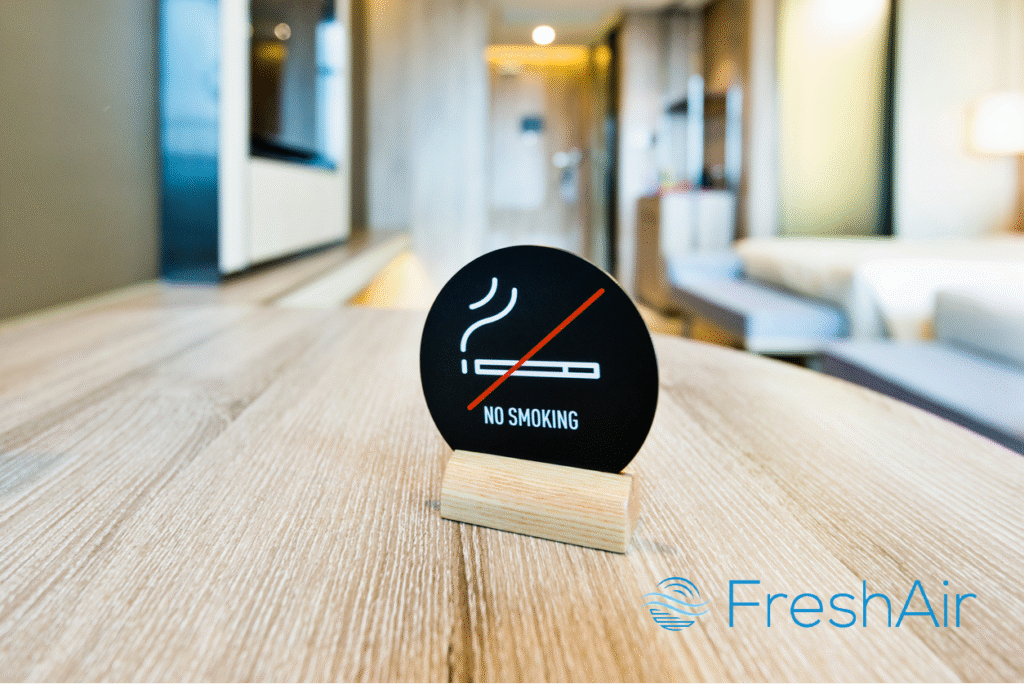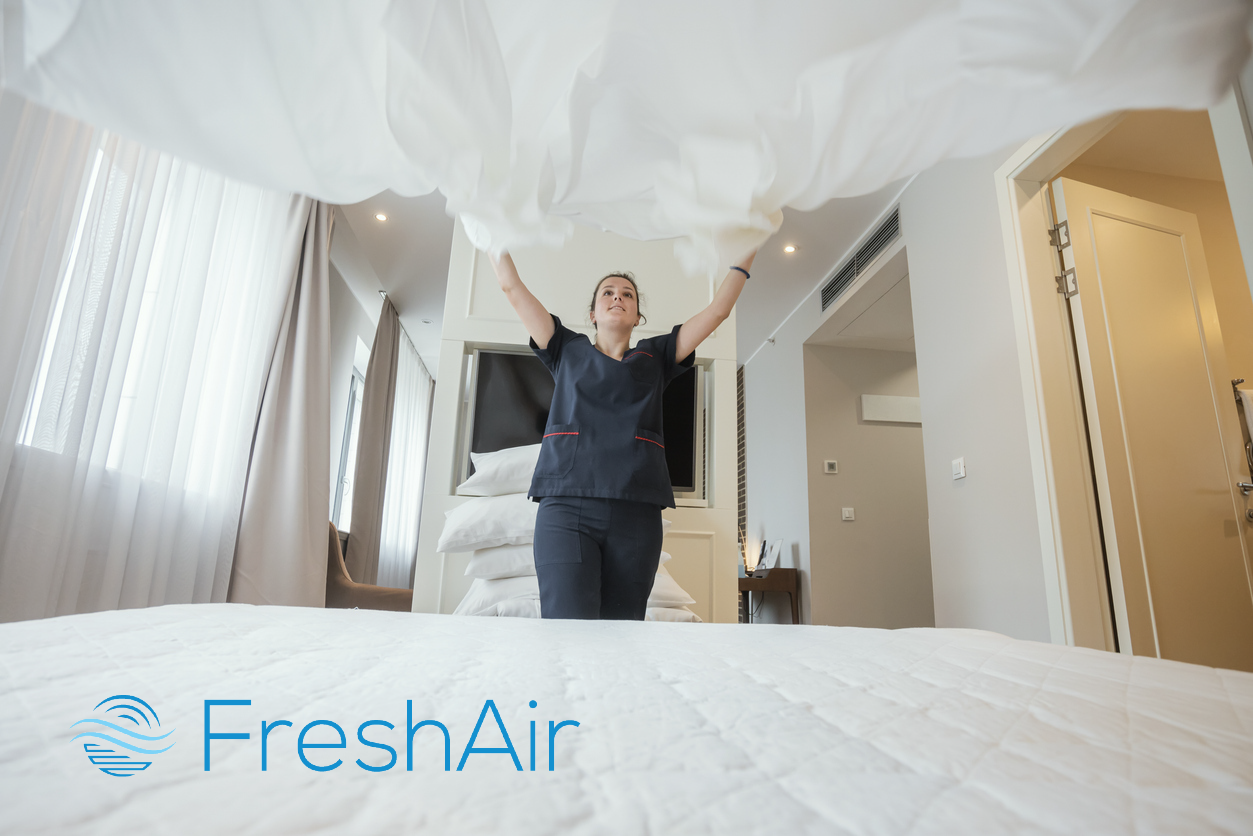When guests leave reviews, what often drags a property down is not leaky faucets or slow check-in—it’s odor. The 2024 AHLA State of the Industry report (via Ecolab) cites odor as one of the top reasons guests leave negative reviews, right behind room cleanliness and pests. AHLA
In fact, in Ecolab’s “Hotel Cleanliness Consumer Survey,” 60% of respondents rated guest room cleanliness among the top three factors for a positive experience, and “no odor / pleasant fragrance” was the top indicator of a “clean room.” Ecolab
Cleanliness and odor are deeply linked. Even if surfaces look spotless, lingering smells can imply neglect and degrade perceived quality. According to industry sources, negative guest experiences are shared widely—95% of users say they’re likely to report a bad stay, often via review sites or social media. AHLA
Additionally, some studies in hospitality research demonstrate that guest perceptions of cleanliness correlate to the condition of high-touch surfaces. ResearchGate
What does this mean for hoteliers? A guest may not overtly complain about a smell, but the presence of odor can quietly suppress positive reviews, reduce return bookings, and erode brand reputation.
And because odor is so invisible yet perceptible, it undermines the trust guests have that what they see is what they experience. That “something is off” feeling is enough to tone down praise—or even prompt a negative review.
Steps Hoteliers Can Take to Eliminate Odor, Enforce Smoking Policies, and Drive Better Reviews
Below is a suggested roadmap:
| Step | Action | Why It Helps |
| 1. Establish a Zero-Tolerance Smoking Policy | Clearly communicate no-smoking rules in booking, signage, policies, and lease terms | Sets expectations and gives you grounds to enforce fees or remediation |
| 2. Deploy Molecular Smoking Sensors | Use sensors that detect burning tobacco, marijuana, and vape at molecular levels to trigger alerts | Provides real evidence to validate remediation and avoids false positives |
| 3. Automate Ventilation Flush Cycles | When a sensor triggers, force fresh air exchange (HVAC boost) to clear odor molecules | Actively removes odor sources before guests smell them |
| 4. Train Housekeeping & Maintenance | Emphasize deodorization protocols, deep-clean textiles, air purge cycles | Addresses residual odor carriers in fabrics, drapes, carpets |
| 5. Maintain Proactive Monitoring & Alerts | Review sensor logs nightly, set escalation protocols, preserve evidence | Allows early intervention before odors become noticeable |
| 6. Collect Guest Feedback & Monitor Reviews | Track odor complaints, correlate to sensor data, respond quickly | Shows responsiveness and can convert negative sentiment to positive |
| 7. Promote “FreshAir Certified” Rooms | Market rooms as tested-odor-free in booking platforms | Signals confidence to guests and can boost reviews |
By being proactive—not reactive—you reduce the chance odor ever becomes part of the guest’s experience (or their online complaint).
To learn how your property can embrace wellness through clean air, schedule a demo today to discover the FreshAir Sensor advantage.


